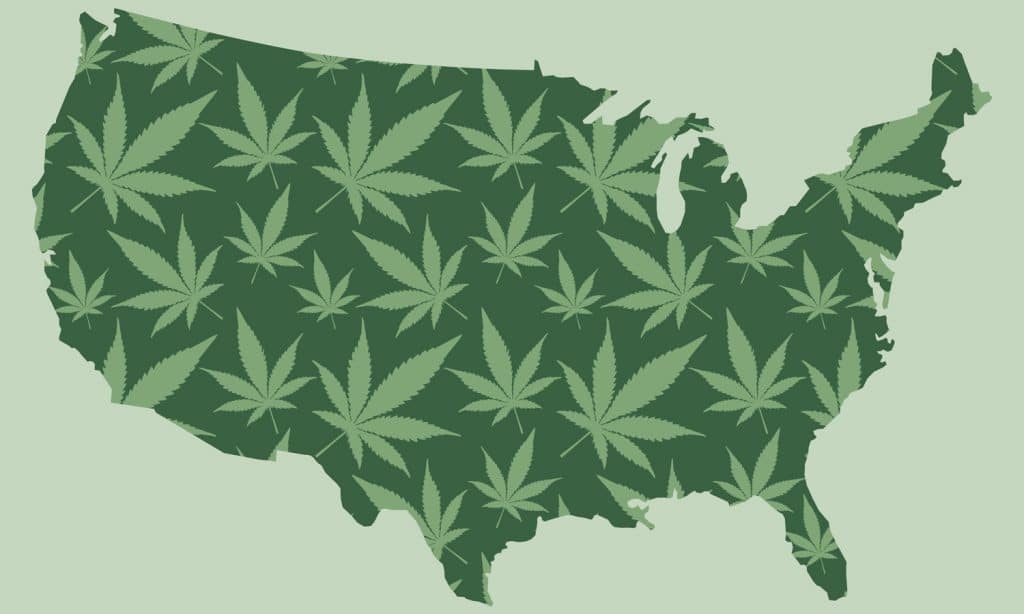So far, 11 states have legalized marijuana. Decriminalization, however, is a different beast.
The issue of marijuana reform is not one dimensional, not in the slightest. In addition to the various underlying issues aside from just making it legal, fear and skepticism have led to a variety of ways that this plant is presently being managed in the United States.
Some jurisdictions have legalized for medicinal use, while others have unleashed the leaf in a manner that allows adults 21 and over to partake. Other states have opted instead to just decriminalize it.
But if there is one confusion in this day and age concerning the methods of marijuana reform this country has been experimenting with, it’s precisely what the difference between legalization and decriminalization is. And which one is better in the grand scheme of longevity and public health and safety.
First, the differences between the two methods.
When a state legalizes marijuana, what it’s really doing is eliminating the laws it has associated with the possession and personal use of cannabis. It means people (typically adults 21 and older) can no longer be punished by the county, city or state for most marijuana-related offenses.
These laws often come with possession limits, allowing adult individuals to hold up to an ounce of weed (sometimes two) without getting into trouble. In many cases, these laws also allow adults to engage in home cultivation. Depending on the state, the rules essentially give adults the freedom to grow a certain number of plants in their home (or outside garden) for personal use.
RELATED: The Majority Of Americans Support Decriminalizing All Drugs
Legalization also gives the state government the power to establish a taxed and regulated market, allowing pot consumers to purchase cannabis products from a retail environment. Usually, the state gives local municipalities the freedom to decide whether they want to cater to pot shops or not. Just think of marijuana legalization in terms of how the alcohol trade works. Booze is fully legal, and adults 21 and older can buy it from liquor stores and other licensed retailers. But there are still some “dry” counties in parts of the country. Marijuana isn’t any different.
State and local jurisdictions benefit from the legalization model, too, as they all collect tax revenue allotted for road construction, schools and combatting drug addiction. So far, 11 states have gone this route.

Decriminalization, however, is a different beast.
These laws basically allow low-level marijuana offenders to escape jail and criminal charges. The rules are just a little less restrictive than in a full-blown prohibition regime and there is no retail market. Anyone caught for pot in a place where decriminalization is in effect can expect to receive a small fine (typically, between $50 and $200), and they may have to make an appearance in court. It just depends on the state or local authorities. But as long as small-time possession is involved, there is never a situation where an offender has to worry about spending time in jail, losing their vehicle or dealing with a criminal record.
RELATED: Does Legalizing Marijuana Help Or Harm Americans? Weighing The Statistical Evidence
Go over the possession limit, though, and it’s a different story altogether. Think of decriminalization as similar to a seat belt violation. It’s still against the law to drive around without a seat belt, but the cops aren’t going to cuff you for it. They’re going to hand you a citation, tell you to be careful and move on. But don’t expect to keep your weed. Police will usually seize it even though it is decriminalized. After all, it’s not legal to be in possession of marijuana, it’s just not a criminal offense. Several states and cities have gone this way rather than entertain a fully legal system.
Now, which is best?
At its core, legalization is really the most American way of dealing with marijuana. It puts it safely in the hands of marijuana consumers and knocks out the black market, it creates business opportunities, jobs, and reignites stagnant economies. Some naysayers, however, are concerned that it also gives children the wrong impression about the overall safety of the drug and they worry that it may also create more socioeconomic problems down the road.
Decriminalization has had its fair share of success — it reduces marijuana-related arrests — but it also strengthens the black market. So while most pot consumers benefit from these laws, the streets become even more lucrative money-makers for criminal organizations. And this can increase violent crime. On the other hand, only drug dealers and violent criminals end up in the prison system.
We are of the opinion that legalization makes the most sense when pushing for marijuana reform that tackles issues of public health and safety. Toss in the financial rewards, and it’s hard to argue that this substance shouldn’t receive the same treatment as other legal drugs like alcohol and tobacco.

